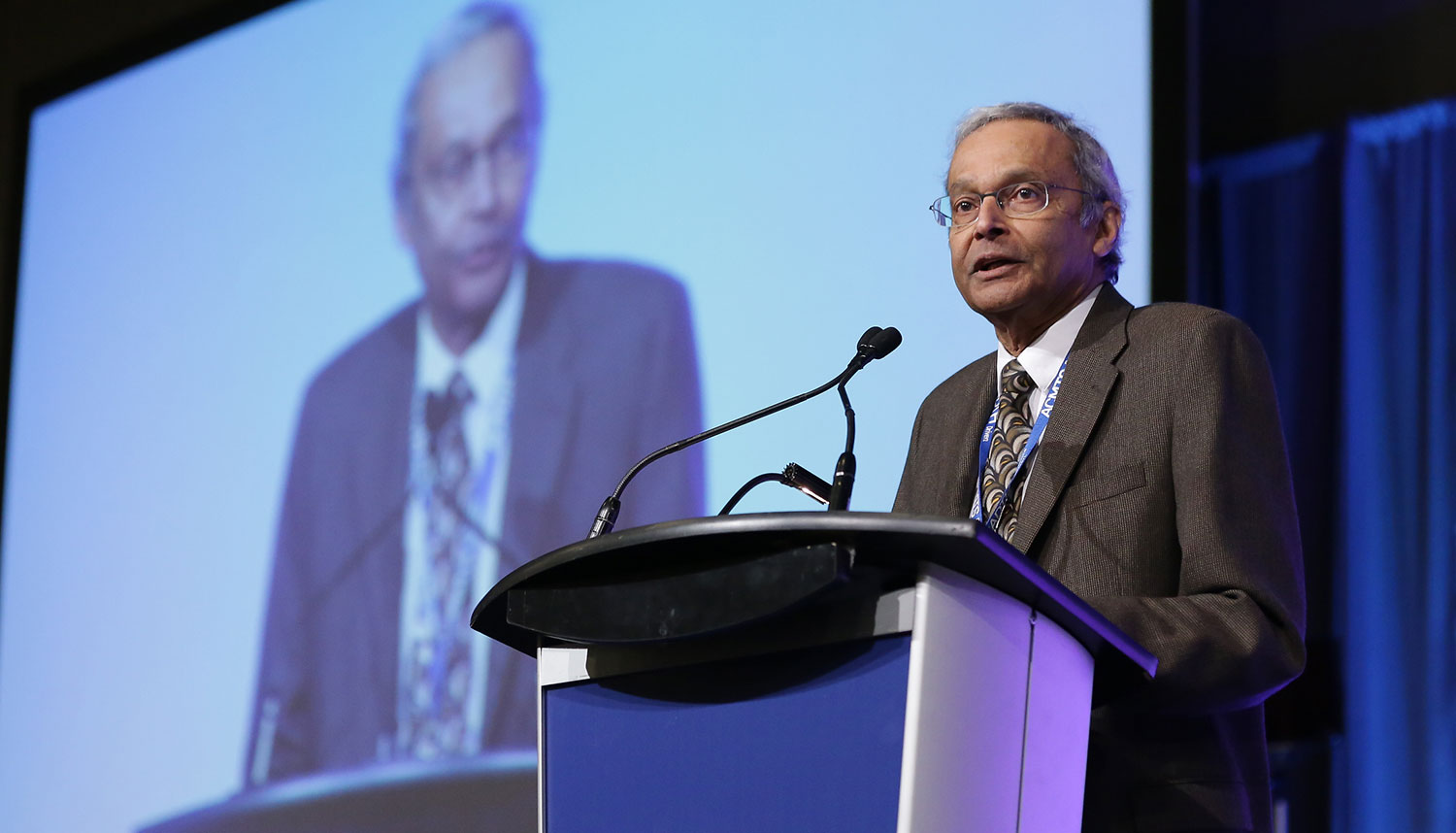
Dev Menon was recently recognized for his role in establishing health technology assessment in Canada's health care system. (photo by John Major Photography)
Have you ever considered the costs of Canada's universal health care that allow you to visit a doctor, get diagnostic tests and some treatments without opening your wallet?
Between 2017 and 2018, Health Canada will contribute more than $37 billion to provinces and territories for health care costs. Alberta Health will spend $21 billion on its residents in 2017. These large sums of money are still not enough to cover all the health care needs of every citizen.
To maximize resources, governments must decide where to allocate money for drugs, devices and technologies that that will see the greatest return on investment. That is, good health and quality of life for citizens.
Dev Menon, professor in the School of Public Health, has spent nearly 30 years in health technology assessment (HTA): gathering, evaluating and presenting data to governments to help make informed spending decisions.
For someone whose PhD is in theoretical physics, a career in HTA is unexpected. Menon's HTA career began when he was working in nuclear medicine at the University of Alberta Hospital. He realized the hospital didn't have evidence to explain why and how new equipment made things better, and for whom. The hospital CEO asked him to find out and, in 1988, created a department headed by Menon to do so.
In 1990, Menon became the founding executive director of an organization known today as the Canadian Agency for Drugs and Technologies in Health (CADTH).
Menon was recently awarded the Dr. Jill M. Sanders Award of Excellence in Health Technology Assessment from CADTH, recognizing his significant and lasting contribution to HTA, evidence-based drug reviews and optimal health technology management in Canada.
"I feel honoured and flattered. This recognition has made me reflect on my career and how far the field has come-sometimes because of me and sometimes in spite of me," said Menon. "I am very grateful."
Menon acknowledged that decisions made about health care spending are not just a matter of dollar and cents. "We must balance budgets with society's preferences," he said. "Our social values are important when making decisions that affect quality of life and health care costs."
Currently, Menon heads up the Health Technology and Policy Unit (HTPU), generating evidence to support Government of Alberta health technology policies. He also leads a research initiative, Promoting Rare-Disease Innovations through Sustainable Mechanisms (PRISM), which engages the public to identify values and preferences to gain insight into issues surrounding the management of unique technologies.